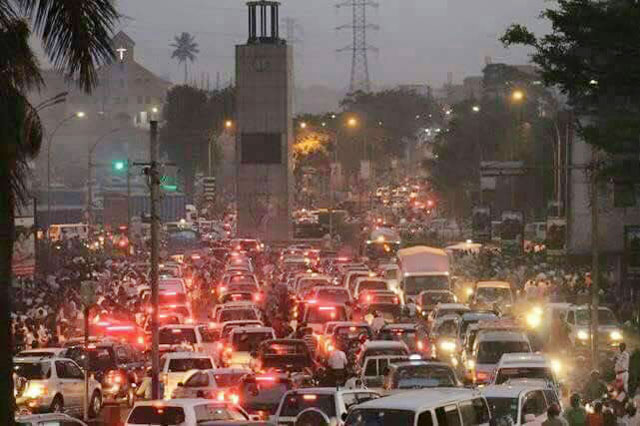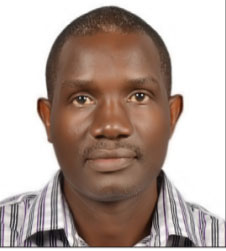
When no one cares, including the police, petty criminals snatching bags will go on to commit bigger crimes
COMMENT | JOSEPH WERE | Okira Ito. Many Ugandans do not know that name. But they need to know it. Okira Ito was a Japanese road traffic flow expert working with Kampala Capital City Authority. On Sept.08 he was being driven in a car when thieves pounced on him, snatched his laptop, phones, and money. The thieves beat him to death when, in desperation, he got out of the car and ran after them to rescue his property.
Okira Ito is the latest victim of such crime. Car owners drive in fear of imminent attack these days. Stories of same such crimes, committed in the same manner, same locations, and same time are common. There is widespread evidence of crime homogeneity.
You have possibly seen a man jump out of nowhere by the roadside, snatch a phone from a passenger in a vehicle in the traffic jam and walk –not run- away. It happens on Mukono-Seeta road, at the old Electoral Commission office on Jinja Road and other places. Videos of the same manner of crime recorded on other roads in other parts of the country are common.
The real danger is that these crimes go unchecked. Uganda is sometimes referred to as a police state. But based on the trends of criminality we are witnessing, it is a statement without testament or a contradiction of the facts.
A police state describes a state where the government uses the police to exercise an extreme level of control over the population. But the emerging trend of crimes shows that IGP John Martins Okoth Ochola heads an absentee police incapable of enforcing anything. What this means is that there is zero enforcement of law and order, peace and quiet, or social order.
Okira Ito’s robbery and murder proves two important theories of policing. The first is that when the police do nothing about small crimes, these petty criminals will move on to bigger crimes. Okira Ito’s attackers set out to grab his possessions but ended up as murderers. That is the basis for self-selection policing; where it is known that a criminal caught in a minor infraction turns out to be involved in something bigger. That is the real danger we must fear. And it is already happening.
The second is the `broken windows theory’ attributed to James Q. Wilson; an expert in public administration, and George L. Kelling; a criminologist.
Window-breaking does not necessarily occur on a large scale because some areas are inhabited by determined window-breakers whereas others are populated by window-lovers; rather, one un-repaired broken window is a signal that no one cares, and so breaking more windows costs nothing. (It has always been fun.) They wrote that in 1982 in a newspaper article.
In an incident that happened in Kampala at the former offices of the Electoral Commission on Jinja Road. A thug walked out of the bushes, targeted a Mercedes Benz in the jam, walked calmly over, plucked off its driving mirror, and walked back to the bush.
Shockingly, the former EC premises have police guards, the Kitgum junction is packed with police, and the jam here involves many people; with between six and eight lanes full of vehicles full of people, full of warm red blood. But nobody did anything.
In fact, the person who was robbed did not raise an alarm or attempt to get out of the vehicle. They were possibly too frightened. They also possibly concluded that attempting to alert anyone, or the police was pointless or dangerous. That they would not get help. It’s just another day in paradise, as we pretend that we cannot see. Oh Lord, is there nothing more anybody can do?
Why is this happening? How can we become easy victims for criminals to pick us off one by one at their whim as we whine and whimper?
The structure, organisation and functions of the Uganda Police Force are designed to protect life, rights, and property, prevent and detect crime, keep law and order, and maintain overall security and public safety. That is the Police’s mandate under the law. It is the reason the force exists. But if it cannot or does not perform any or all the listed functions, then it has failed in its mandate.
The Uganda Police is organised around 17 directorates and 11 units. The directorates reflect the ambitions of the police in fighting crime while the units reflect its operational strategy. The directorates include Criminal Investigation and Intelligence, Fire and Rescue, Traffic, Human Rights and Legal Services, International Relations, counter-terrorism, and Logistics and Engineering. The units have names like Anti-Stock theft, Mineral Protection, Presidential Guard, Canine, Railway, Environmental, Agricultural, and Air. There are also region specific units such as the Kampala Metropolitan Police Unit and the Field Force Unit.
But nobody is under any illusion about the functionality and operations of the police. Nobody thinks the traffic police officers stationed on our roads are there to enforce traffic safety. Nobody calls 911 when being attacked at home in the middle of the night or the Anti-Stock theft unit when their cows and goats are snatched.
True, many of us report cases of crime to police. But it is not because we expect the police to successfully intervene. Usually it is because one needs a police report to place an advert of lost items, haggle with insurance bodies, replace a motor vehicle number plate or lost certificates, testimonials, identity documents, and file a case in court.
We have accepted this as our reality. That when fire breaks out, we pour out buckets of water and sand, that a business will be ransacked by thugs even when it is located just opposite a police station, and that a vehicle in dangerous mechanical condition will rumble on our roads unhindered with the driver bribing traffic officer after traffic officer.
In many cases, the police also commit crimes. They protect land grabbers, take bribes, drive DMCs, and ride bikes without safety helmets.
And the danger is that, unless something is done, this trend of criminality is likely to get worse. We have seen stories of how robbers attack an apartment block and move from house to house, breaking in, stealing, raping, injuring, and murdering. People alarm, scream, make phone calls and no help comes. Then the police canine unit arrives at 10am the next day and asks the victims for fuel money.
I have been to countries that are described as police states and in those countries, there is no criminal impunity. The police are in fact everywhere. But the absentee police that IGP John Martins Okoth Ochola heads is turning Uganda into a state without a police. The absence of police is quickly becoming a national security liability. That must change.
*****

 The Independent Uganda: You get the Truth we Pay the Price
The Independent Uganda: You get the Truth we Pay the Price





